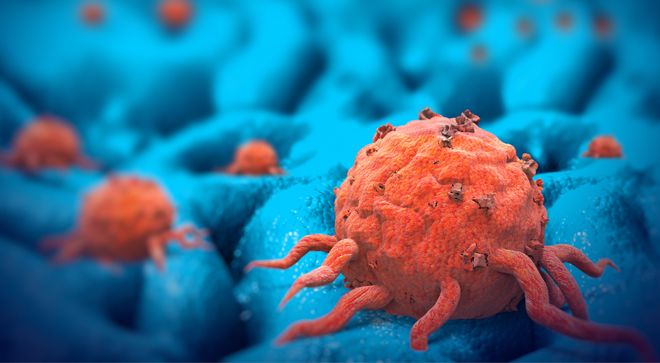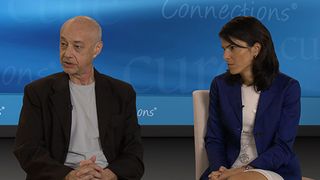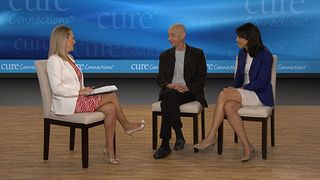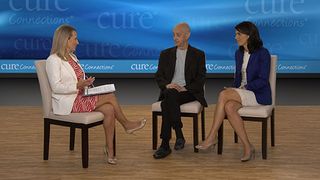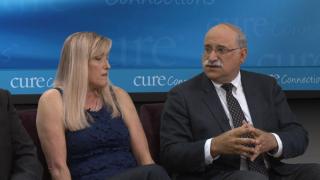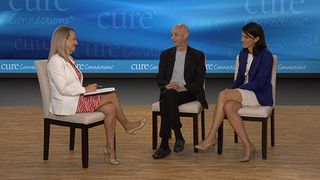
Prostate Cancer
Latest News
Latest Videos

More News


The Food and Drug Administration’s approval of the PARP inhibitor Lynparza for patients with metastatic prostate cancer gives a smaller subgroup of patients another treatment option if hormonal therapies do not work.

The Food and Drug Administration gave the green light to the PARP inhibitor Lynparza for men with metastatic castration-resistant prostate cancer that has a defective DNA-repair process and has progressed after treatment with the novel hormone-controlling drugs Xtandi (enzalutamide) or Zytiga (abiraterone acetate).

The PARP inhibitor Rubraca represents a new treatment option for men with metastatic castration-resistant prostate cancer that expresses a BRCA gene mutation and has been previously treated with hormonal therapy and taxane-based chemotherapy.

Obesity was associated with increased cardiovascular disease-related mortality and all-cause mortality, as well as potentially increased prostate cancer-specific mortality, in survivors of nonmetastatic prostate cancer.

Understanding prostate cancer.

The PARP inhibitor Lynparza improves survival and delays disease progression in men with metastatic castration-resistant prostate cancer that expresses certain gene mutations inhibiting DNA repair, a study shows.

An imaging technique known as PSMA PET/CT can detect disease spread at diagnosis more effectively than conventional scans, helping doctors to prescribe appropriate treatments.

From an investigational cancer therapy being studied as a treatment for COVID-19 to the NBA and NHL helping to raise over $500,000 for prostate cancer research, here’s what’s making headlines in the cancer space this week.

A medication that is commonly prescribed to treat depression appeared well tolerated in patients with biochemical recurrent prostate cancer.
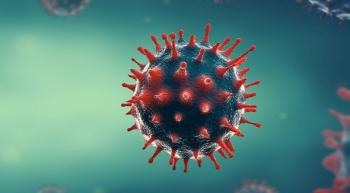
Patients with cancer who have routine follow up appointments are being asked to reschedule to help combat the spread of COVID-19.

Patients with prostate cancer who were getting ready to receive androgen‐deprivation therapy (ADT) saw sustained improvements in quality of life and their cardiovascular events risk profile after taking part in a supervised exercise program

Patients with prostate cancer are facing a unique situation amid the COVID-19 pandemic. Here are some of the resources the Prostate Cancer Foundation is offering to help patients in this turbulent situation.

Decision regret — ranked on a scale of 0 to 100 — was low in patients with localized disease, with a mean score of 14, and there was no significant difference in decision regret between open versus robotic surgery.

Statins alone, and in combination with metformin, are associated with reductions in mortality in patients with high-risk prostate cancer.





A study of the Veterans Affairs health system found that, despite trends suggesting otherwise, African American men with prostate cancer had similar survival outcomes, compared with non-Hispanic White men.

Researchers found that men with prostate cancer who consumed a diet high in vegetable did not experience clinical benefit; however, overall health benefits were seen.

How providers communicate medical bills to payers and patients, mandated by the US Centers for Medicare & Medicaid Services, still did not help patients and health care professionals in understanding differences in cost.

Researchers found that combining family history and genetic risk scores to determine inherited risk for prostate cancer could personalize screening strategies for men.

A modified citrus pectin, naturally found in the peel of citrus fruits, showed continued benefit among men with prostate cancer.

Men with metastatic castration-sensitive prostate cancer will now have a fourth treatment option to consider.


